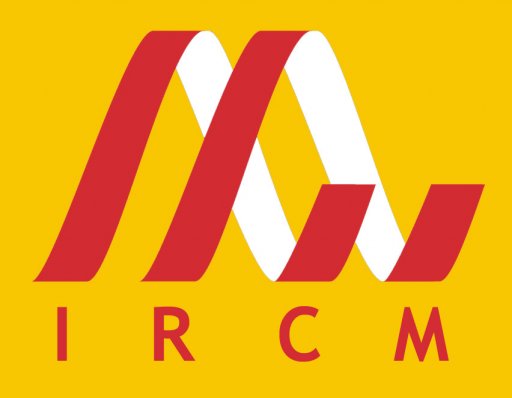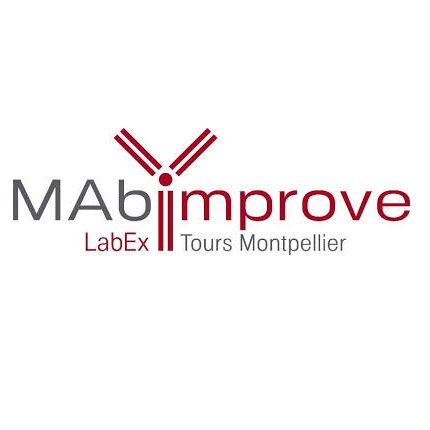


professeur d'immunologie moléculaire et directrice de l'immunologie translationnelle au Centre d'immunologie du cancer de la faculté de médecine de l'Université de Southampton
Professors Sally Ward and Raimund Ober have recently relocated their research group from the USA to Southampton. Their interdisciplinary research program is dedicated to the use of protein engineering to develop novel antibody-based therapeutics.
The identification in the Ward/Ober laboratory of the Fc receptor, FcRn, as a regulator of IgG levels and transport has resulted in significant interest in targeting FcRn in biopharma. Extensive analyses of FcRn behaviour, including subcellular trafficking studies, have led to collaborations with biopharma to develop several therapeutics that are based on modulating the interactions of IgG with FcRn. For example, one such therapeutic (Efgartigimod) that inhibits FcRn activity has been developed in collaboration with Argenx, and has recently been successfully used in phase 3 trials to treat antibody-mediated autoimmune diseases.
"The presentation will cover how a combination of antibody engineering, fluorescence microscopy and mouse disease models have been used to inform the design of therapeutics to modulate the dynamic behavior of antibodies for the treatment of autoimmunity. In particular, the targeting of the MHC Class I-related receptor, FcRn, that recycles and transports IgG to maintain IgG homeostasis will be discussed. The generation of engineered antibody-drug conjugates that are designed to deliver their cytotoxic payload more efficiently to tumor cells will also be presented"

PhD student – INSERM U1160, Intestinal Immunity in Inflammation and Cancer - Hôpital Saint Louis, Paris
« The 3IC team works on the intestinal immunity in inflammation and cancer, and more specifically on T cells. The intestine presents a particular immune system, constantly stimulated by exogenous antigens from food, commensal microbiota or pathogens. Specific regulations balance the immune response between tolerance of microbiota and food antigens, and protection against pathogens. This immune homeostasis is crucial and its perturbation are involved in several pathologies. Upon epithelial stress and continuous inflammation, an abnormal proinflammatory immune response can induce autoimmune reactions and chronic inflammation diseases, whereas an excessive tolerant phenotype established an immunosuppressive microenvironment favourable to cancer progression. In this tumor context, an antitumor T cell response is clearly engaged but the upregulation of immunosuppressive markers, like the immune checkpoints, allow the tumor immune escape. Immunotherapies targeting these markers, anti-PD-1 and anti-CTLA-4, were developed but presented a weak efficacy in colorectal cancer (CRC). New therapeutic strategies are necessary. In this project, we studied the antitumor T cell response involved in human CRC. Based on a prospective cohort, our objectives were to better characterize this response to find new potential target for immunotherapy and test their efficacy in our innovative autologous coculture model. We focused on several different pathways including CD39 and CD73. »
Contact IRCM : Laurent GROS

PhD student – INSERM U1160, Intestinal Immunity in Inflammation and Cancer - Hôpital Saint Louis, Paris
« The 3IC team works on the intestinal immunity in inflammation and cancer, and more specifically on T cells. The intestine presents a particular immune system, constantly stimulated by exogenous antigens from food, commensal microbiota or pathogens. Specific regulations balance the immune response between tolerance of microbiota and food antigens, and protection against pathogens. This immune homeostasis is crucial and its perturbation are involved in several pathologies. Upon epithelial stress and continuous inflammation, an abnormal proinflammatory immune response can induce autoimmune reactions and chronic inflammation diseases, whereas an excessive tolerant phenotype established an immunosuppressive microenvironment favourable to cancer progression. In this tumor context, an antitumor T cell response is clearly engaged but the upregulation of immunosuppressive markers, like the immune checkpoints, allow the tumor immune escape. Immunotherapies targeting these markers, anti-PD-1 and anti-CTLA-4, were developed but presented a weak efficacy in colorectal cancer (CRC). New therapeutic strategies are necessary. In this project, we studied the antitumor T cell response involved in human CRC. Based on a prospective cohort, our objectives were to better characterize this response to find new potential target for immunotherapy and test their efficacy in our innovative autologous coculture model. We focused on several different pathways including CD39 and CD73. »
Contact IRCM : Laurent GROS

Nanolive, Genève, Suisse
Contact IRCM : Alexandre Djiane

Nanolive, Genève, Suisse
Contact IRCM : Alexandre Djiane

Institute of Cancer Research, Medical University of Vienna, Austria
"Clinical evidence shows that, following initial response to treatment, drug-resistant cancer cells frequently evolve, and eventually most tumors become resistant to all available therapies. The most straightforward cause of therapy resistance is linked to cellular alterations that prevent drugs to act on their target. Upregulation of cell membrane efflux transporters of the ATP-binding cassette (ABC) superfamily leads to simultaneous resistance against structurally and functionally unrelated chemotherapeutic agents. In particular, P-glycoprotein (Pgp, MDR1), the product of ABCB1 gene, was shown to be expressed in several drug resistant malignancies. Based on the correlation of P-glycoprotein expression and function with unfavorable treatment response, it is universally accepted that pharmacological modulation of the MDR phenotype has the potential to significantly increase the efficacy of currently available anticancer therapies. Unfortunately, despite a few early successes, clinical trials conducted with Pgp inhibitors did not fulfill this expectation, failing to confirm clinical benefit. Failure of the trials led to a setback in research, and the shutdown of the pharmaceutical development of transporter inhibitors for the improvement of anticancer therapy. Yet the “transporter problem” has not vanished, as evidenced by new studies supporting the relevance and benefit of research on the role of ABC transporters in clinical drug resistance. Failure of the inhibitors has boosted research in other directions, exploring the possibility to evade efflux, or to exploit the paradoxical sensitivity associated with efflux-based drug resistance mechanisms. In this talk I will describe new approaches to combating multidrug-resistant cancer, including the development of drugs that engage, evade or exploit efflux by P-glycoprotein."
Contact IRCM : Charles Theillet
Le séminaire sera diffusé par Zoom. Un lien sera envoyé par mail quelques jours avant la date
This will be a Zoom webinar. A link will be sent by email in due time.

Institute of Cancer Research, Medical University of Vienna, Austria
"Clinical evidence shows that, following initial response to treatment, drug-resistant cancer cells frequently evolve, and eventually most tumors become resistant to all available therapies. The most straightforward cause of therapy resistance is linked to cellular alterations that prevent drugs to act on their target. Upregulation of cell membrane efflux transporters of the ATP-binding cassette (ABC) superfamily leads to simultaneous resistance against structurally and functionally unrelated chemotherapeutic agents. In particular, P-glycoprotein (Pgp, MDR1), the product of ABCB1 gene, was shown to be expressed in several drug resistant malignancies. Based on the correlation of P-glycoprotein expression and function with unfavorable treatment response, it is universally accepted that pharmacological modulation of the MDR phenotype has the potential to significantly increase the efficacy of currently available anticancer therapies. Unfortunately, despite a few early successes, clinical trials conducted with Pgp inhibitors did not fulfill this expectation, failing to confirm clinical benefit. Failure of the trials led to a setback in research, and the shutdown of the pharmaceutical development of transporter inhibitors for the improvement of anticancer therapy. Yet the “transporter problem” has not vanished, as evidenced by new studies supporting the relevance and benefit of research on the role of ABC transporters in clinical drug resistance. Failure of the inhibitors has boosted research in other directions, exploring the possibility to evade efflux, or to exploit the paradoxical sensitivity associated with efflux-based drug resistance mechanisms. In this talk I will describe new approaches to combating multidrug-resistant cancer, including the development of drugs that engage, evade or exploit efflux by P-glycoprotein."
Contact IRCM : Charles Theillet
Le séminaire sera diffusé par Zoom. Un lien sera envoyé par mail quelques jours avant la date
This will be a Zoom webinar. A link will be sent by email in due time.

Institute of Cancer Research, Medical University Vienna
Contact IRCM: Charles Theillet
“Le séminaire sera diffusé en Webinaire Zoom. Le lien sera diffusé 2 jours avant la date prévue. Il sera transmis en salle de séminaire avec une audience limitée pour respecter la distanciation“

Institute of Cancer Research, Medical University Vienna
Contact IRCM: Charles Theillet
“Le séminaire sera diffusé en Webinaire Zoom. Le lien sera diffusé 2 jours avant la date prévue. Il sera transmis en salle de séminaire avec une audience limitée pour respecter la distanciation“

Centre International de Recherche en Infectiologie (CIRI), INSERM /CNRS/ENS, Lyon
Le séminaire aura lieu dans la salle de séminaire avec une audience limitée pour respecter la distanciation et sera aussi diffusé en Webinaire Zoom. Le lien sera diffusé 2 jours avant la date prévue.
Contact IRCM : Claude Sardet

Centre International de Recherche en Infectiologie (CIRI), INSERM /CNRS/ENS, Lyon
Le séminaire aura lieu dans la salle de séminaire avec une audience limitée pour respecter la distanciation et sera aussi diffusé en Webinaire Zoom. Le lien sera diffusé 2 jours avant la date prévue.
Contact IRCM : Claude Sardet

Chercheur dans l'équipe 1 du CEPR - réanimateur au sein du service de Médecine Intensive Réanimation à Tours
« Les formes graves de COVID-19 sont caractérisées par une infection pulmonaire qui évolue fréquemment vers un Syndrome de Détresse Respiratoire Aiguë (SDRA), caractérisé par une dérégulation de la réponse inflammatoire pulmonaire. Les acteurs cellulaires impliqués sont cependant mal connus. Dans ce travail, nous avons exploré l'implication potentielle des lymphocytes T non conventionnels, une population hétérogène de Lymphocytes T (iNKT, LTγδ et MAIT) ayant un rôle important dans la réponse inflammatoire, notamment au niveau des muqueuses. Leur implication chez l'Humain dans les infections respiratoires est très peu documentée, et en cours d'investigation au CEPR.
Nous avons ainsi analysé la fréquence et le niveau d'activation des LTNC chez 30 patients admis en réanimation pour COVID-19 au CHU, dans le sang et les voies aériennes. Dans le sang, les LTNC présentaient un fort niveau d'activation, et une réduction importante de leur fréquence, phénotype qui persistait au cours de l'hospitalisation. Parallèlement, nous avons pu mettre en évidence la présence de LTNC fortement activés dans les voies aériennes des patients, suggérant leur implication dans l'inflammation locale. De façon intéressante, enfin, le niveau d'activation des LTNC à l'admission en réanimation était associé à une meilleure évolution clinique des patients.
Ce travail a démontré -pour la première fois- l'existence de fortes modifications phénotypiques et fonctionnelles des LTNC dans le COVID-19 grave, justifiant la poursuite des explorations de ces populations dans le cadre du SDRA et du COVID-19 ».
